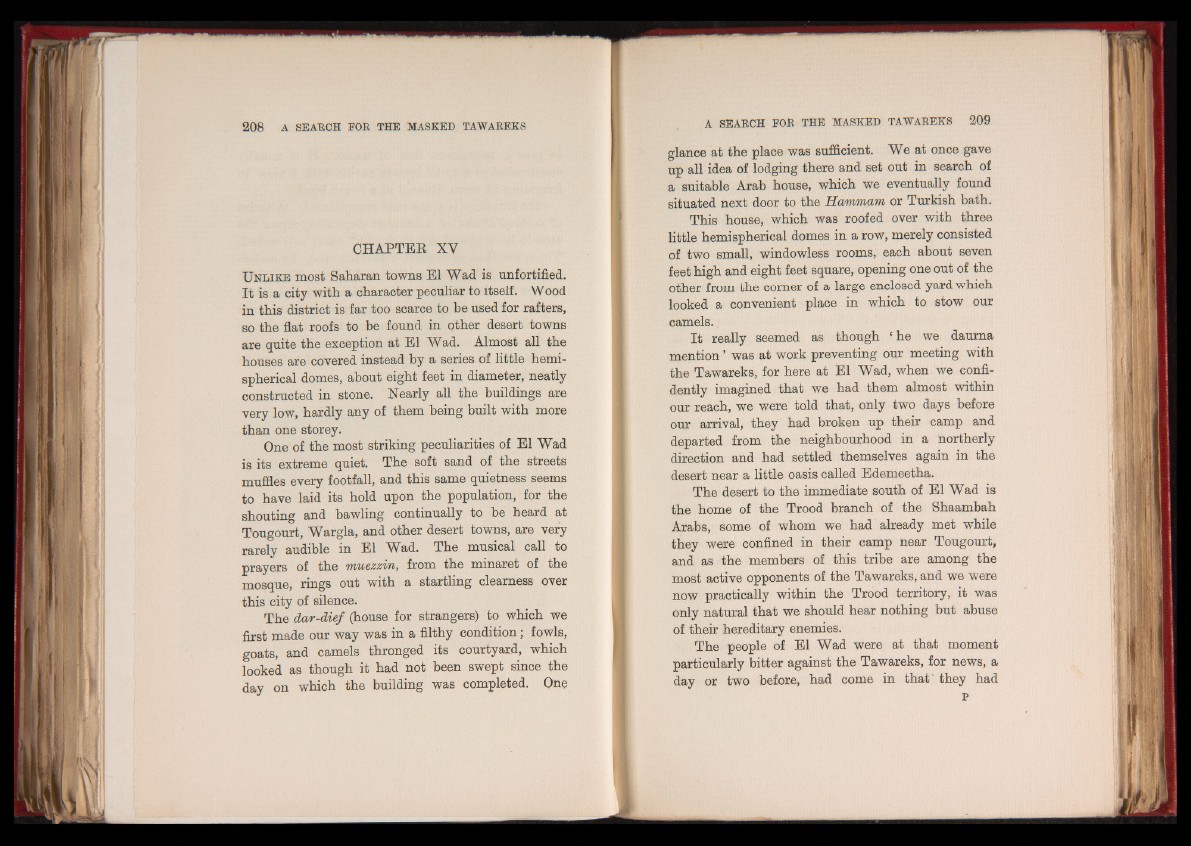
CHAPTER XV
U n l ik e most Saharan towns El Wad is unfortified.
It is a city with a character peculiar to itself. Wood
in this district is far too scarce to be used for rafters,
so the flat roofs to be found in other desert towns
are quite the exception at El Wad. Almost all the
houses are covered instead by a series of little hemispherical
domes, about eight feet in diameter, neatly
constructed in stone. Nearly all the buildings are
very low, hardly any of them being built with more
than one storey.
One of the most striking peculiarities of El Wad
is its extreme quiet. The soft sand of the streets
muffles every footfall, and this same quietness seems
to have laid its hold upon the population, for the
shouting and bawling continually to be heard at
Tougourt, Wargla, and other desert towns, are very
rarely audible in El Wad. The musical call to
prayers of the muezzin, from the minaret of the
mosque, rings out with a startling clearness over
this city of silence.
The dar-dief (house for strangers) to which we
first made our way was in a filthy condition ; fowls,
goats, and camels thronged its courtyard, which
looked as though it had not been swept since the
day on which the building was completed. One
glance at the place was sufficient. We at once gave
up all idea of lodging there and set out in search of
a suitable Arab house, which we eventually found
situated next door to the Hammam or Turkish bath.
This house, which was roofed over with three
little hemispherical domes in a row, merely consisted
of two small, windowless rooms, each about seven
feet high and eight feet square, opening one out of the
other from the corner of a large enclosed yard which
looked a convenient place in which to stow our
camels.
It really seemed as though ‘ he we daurna
mention ’ was at work preventing our meeting with
the Tawareks, for here at El Wad, when we confidently
imagined that we had them almost within
our reach, we were told that, only two days before
our arrival, they had broken up their camp and
departed from the neighbourhood in a northerly
direction and had settled themselves again in the
desert near a little oasis called Edemeetha.
The desert to the immediate south of El Wad is
the home of the Trood branch of the Shaambah
Arabs, some of whom we had already met while
they were confined in their camp near Tougourt,
and as the members of this tribe are among the
most active opponents of the Tawareks, and we were
now practically within the Trood territory, it was
only natural that we should hear nothing but abuse
of their hereditary enemies.
The people of El Wad were at that moment
particularly bitter against the Tawareks, for news, a
day or two before, had come in that' they had
P